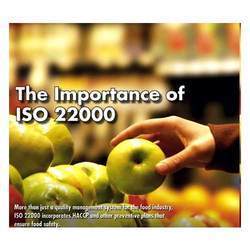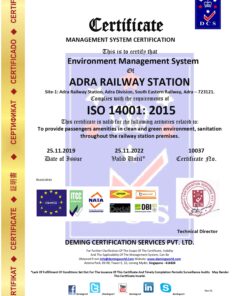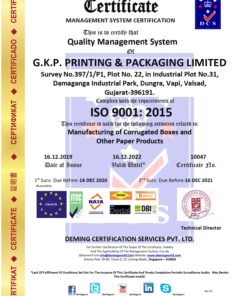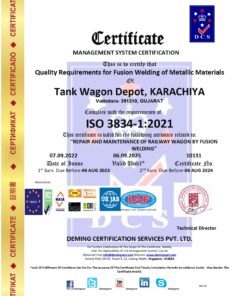Sale!
ISO 22000 Certification
Original price was: ₹20,000.00.₹10,000.00Current price is: ₹10,000.00.
ISO 22000 is an international standard that specifies the requirements for a food safety management system (FSMS). This standard aims to ensure food safety along the entire food chain, from production to consumption.
Here are some key points about ISO 22000 certification:
### Objectives of ISO 22000 Certification:
1. **Ensure Food Safety:** The primary goal is to ensure that food products are safe for consumption by identifying and controlling food safety hazards.
2. **Build Consumer Confidence:** Certification demonstrates a commitment to food safety, which can enhance consumer trust in your products.
3. **Compliance with Legal Requirements:** Adhering to ISO 22000 helps organizations comply with food safety regulations and standards globally.
### Key Components of ISO 22000:
1. **Food Safety Management System (FSMS):** Establishing a systematic approach to managing food safety hazards and risks.
2. **Prerequisite Programs (PRPs):** Implementing basic hygiene practices and programs to control food safety hazards at the operational level.
3. **HACCP Principles:** Applying Hazard Analysis Critical Control Points (HACCP) principles to identify and control food safety hazards.
4. **Communication:** Ensuring effective communication about food safety issues throughout the organization and with external parties, such as suppliers and customers.
5. **Continuous Improvement:** Implementing processes for monitoring, measuring, and improving the FSMS to enhance food safety performance continually.
### Steps to Obtain ISO 22000 Certification:
1. **Gap Analysis:** Conduct a gap analysis to identify areas where your current practices align with ISO 22000 requirements and areas that need improvement.
2. **Develop FSMS:** Establish and document a Food Safety Management System that meets ISO 22000 requirements.
3. **Implement PRPs and HACCP:** Implement prerequisite programs and HACCP principles to control food safety hazards effectively.
4. **Internal Audit:** Conduct internal audits to assess the effectiveness of the FSMS and identify areas for improvement.
5. **Management Review:** Conduct management reviews to evaluate the FSMS’s performance and suitability for achieving food safety objectives.
6. **Certification Audit:** Engage a third-party certification body to conduct an external audit and assess compliance with ISO 22000 requirements.
7. **Maintain and Improve:** Continuously monitor and improve the FSMS to maintain ISO 22000 certification and enhance food safety performance.
### Benefits of ISO 22000 Certification:
1. **Enhanced Food Safety:** Improved control over food safety hazards and reduced risks of foodborne illnesses.
2. **Market Access:** Facilitated market access by demonstrating compliance with international food safety standards.
3. **Competitive Advantage:** Differentiation from competitors by showcasing commitment to food safety and quality.
4. **Legal Compliance:** Assurance of compliance with food safety regulations and standards globally.
5. **Consumer Trust:** Enhanced consumer trust and confidence in your products.
If you’re considering obtaining ISO 22000 certification, it’s essential to understand the standard’s requirements thoroughly, seek expert guidance if needed, and commit to continuous improvement in food safety practices.










Reviews
There are no reviews yet.